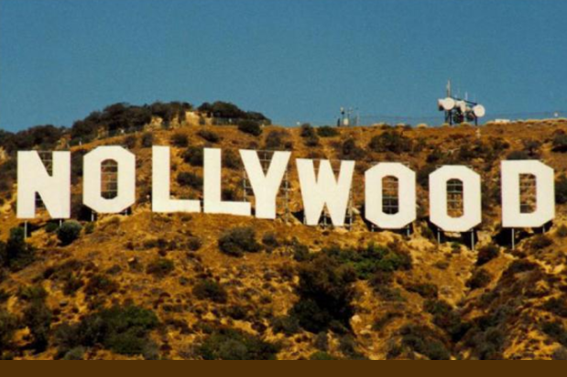Boat tragedy: Wake-up call for safety, accountability in Nollywood
A Nollywood crew including the actor, Junior Pope Odonwodo and a make-up artiste, died last week in a terrible, terrible accident when their boat capsized on the way to a film location. Some say two boats collided, some say the boat drivers were speeding and lost control. An industry source, Steve Eboh, was quoted by The […]

A Nollywood crew including the actor, Junior Pope Odonwodo and a make-up artiste, died last week in a terrible, terrible accident when their boat capsized on the way to a film location. Some say two boats collided, some say the boat drivers were speeding and lost control. An industry source, Steve Eboh, was quoted by The Vanguard as saying that another actor, TC Okafor, caused it because he “kept standing and was pouring libation on the water, and at the same time ringing his bell. In the process, he blocked the view of the person steering the boat in such a way that he couldn’t see the oncoming canoe, thereby leading to a collision.” Whatever caused it, accidents happen. However, if it couldn’t have been prevented, its aftermath could have been better managed. Odonwodo and his colleagues needn’t have died.
The writer, Molara Wood, posted a thought/discussion-provoking tweet after the accident: “Many have pointed to the things missing: life jackets, safety backup. But what of film insurance, the application of which would prohibit certain lapses on a film set? A properly organised film industry would ensure strict compliance, would not leave it to individual whims.”
Wood’s tweet raises critical points about the need for better safety measures and industry standards within Nollywood. It’s both reckless and disturbing that such basic safety protocols, like the provision of life jackets in this instance, were disregarded, leading to tragic consequences. If Nollywood wants to sit at the table with the Big Players. It has to, at the very least, act like it’s already at that table by imitating the working conditions of the big ballers. It must begin, like Wood suggests, that every working actor gets an insurance. An insurance company would have insisted on them not taking such risks as travelling without life vests.
In 2017, 13 unions within Nollywood signed a life insurance, healthcare and pension package for its members. When it was announced seven years ago, there was mention of it also preventing situations whereby actors who fall ill have their healthcare taken care of. Yet between 2017 and now, haven’t we seen at least two popular actors soliciting money for healthcare? And in some cases dying for lack of adequate healthcare (because they didn’t have the money for it)?
Army rescues Another Chibok girl, Lydia Simon
Borno approves N1.3bn scholarship for 997 nursing, midwifery students
Anyway, while Wood and some others were calling for accountability from Nollywood (and urging for better industry standards as a means of ensuring the safety of actors), there were others for whom the solution was to offer sacrifices to “water deities” so that these spirits didn’t demand more “sacrifices.” Someone with a sizable following posted on their Facebook status that Odonwodo and the others died because they didn’t pour Fanta and drop naira notes in the river for the river deities like one of the survivors claimed to have done (ironically, the same survivor Eboh allegedly blames for the accident).
Reproaching the dead for not sacrificing to water deities rather than the industry for not ensuring adequate safety measures reflects a troubling trend of turning to superstition for simple rational solutions. And by the way, who cleans the waters, polluted by Fanta and currency notes and whatever else afterwards? Such beliefs perpetuate harmful practices that have no place in a modern world. There was after all, a report that after the accident, there was a demand (by the community, I assume) that sacrifices be made before the bodies were discovered.
I am all for respecting traditions but let us also do so with commonsense. If sacrifices must be made by an industry that has people who cannot swim plying the river in very basic boats, up and down for shoots, let them not be made to some sweet-toothed deity but to insurance, to proper training, to ensure the safety and well-being of the workers. There was news that nobody around could perform CPR, that Odonwodo hadn’t died immediately and could have lived had he got the help he needed quicker. Whatever the truth, the irrefutable fact is that he and others were there without life vests –those boat operators should have insisted on them –which could have made all the difference
Nollywood needs comprehensive reforms and the stakeholders must commit to industry best practices if it aspires to be taken seriously on the global stage. And we as a people must get serious about holding people in charge – whether they are canoe operators or filmmakers – responsible when preventable fatalities occur. May the souls of the dead rest in peace.
